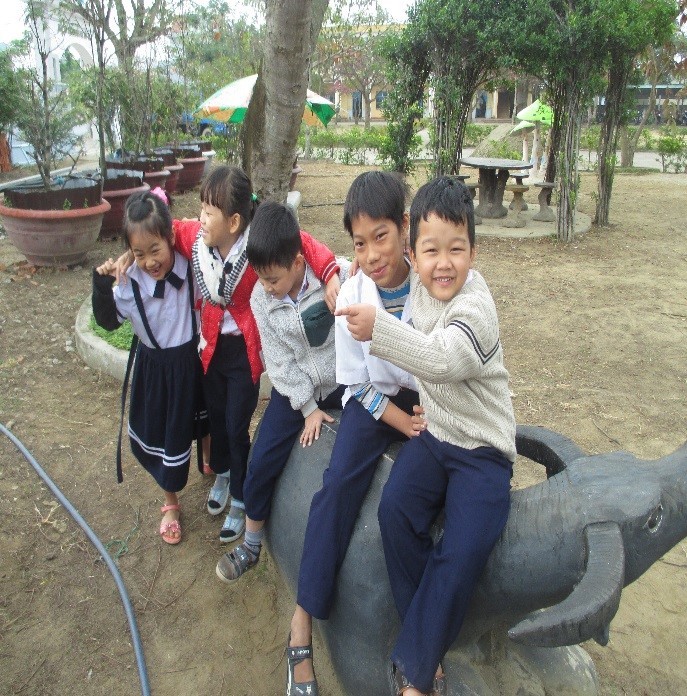
April 2015—When Tho Nguyen was born 10 years ago in Danang, Vietnam, he was diagnosed with cerebral palsy—a congenital condition resulting from abnormal brain development that affects muscle coordination and movement. Cerebral palsy is a non-life threatening but permanent condition that can be challenging to manage, especially for poor families.
Since Tho was born, his father has worked as a bricklayer and his mother stays at home to care for Tho and his three siblings. Multiple trips to the hospital in Tho’s early years strained his family’s already troublesome financial situation, making it difficult for his family to consider enrolling him in a local school for special needs students when he reached primary school age. Although Tho’s physical and motor skills development had progressed through physical therapy, his parents did not think he could benefit from schooling.
In June 2014, the USAID Persons with Disabilities Support Program worked with commune leadership and case managers from Danang’s Department of Education to convince Tho’s parents to try enrolling him in nearby Pham Hong Thai primary school. As part of its broader effort to expand access to education for school-age children with disabilities not enrolled in schools, the project covered Tho’s school fees, meal allowance, uniforms, school bag and other school supplies.
After a semester at Pham Hong Thai primary school, Tho has made significant progress, passing his first semester tests on par with his peers. The project has worked with the school to create an individual education plan for Tho and train teachers so they can support his special needs while helping foster an encouraging learning environment for him at the school.
The new resource room at the school, set up by the project, has educational aids and equipment such as Vietnamese alphabet matching cards, educational toys, and special textbooks for Tho and other students with special needs to get supplementary tutoring to better understand concepts taught during class.
“Tho has made a lot of progress, both physically and mentally,” said Pham Thi Thanh Minh, the vice principal of the Pham Hong Thai school. “We are very proud of him. We thank the Persons with Disabilities Support Program for enabling us to reach more children with disabilities in the community.”
For more than two years, the project has worked with local government social welfare agencies and NGOs to expand access to education for children with disabilities, either by helping enroll children in special schools or programs or providing alternative education for students unable to attend school. So far, it has assisted 146 children through scholarships, donations of school supplies, or linking families to appropriate schools. The project also set up special education resource rooms in five schools and plans to establish 10 more in the next year.
The project provides training for both teachers and administrators to build their special education awareness and carry out individual education plans for special needs students. It is supporting 47 teachers in Danang to obtain a specialized Bachelor’s Degree in special education from the Ho Chi Minh University of Education.
The Persons with Disabilities Support Program, which runs from 2012 to 2015, is designed to build a more sustainable inclusive education system and reach more children like Tho across the country by working with students, educators and the Vietnamese Government.
LINKS
Follow @USAIDVietnam, on Facebook, on Flickr, on YouTube







Comment
Make a general inquiry or suggest an improvement.